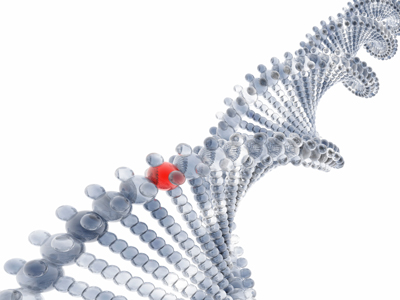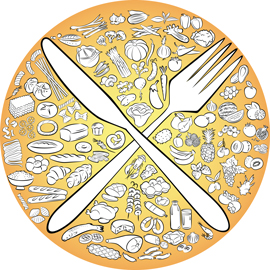 Producing scientific clinical evidence in personalised nutrition requires: a deep and systematic understanding of the power and limitations of current experimental designs; and an understanding of the role of cutting edge statistical techniques and their application to the falsification of complex clinical hypothesis.
Producing scientific clinical evidence in personalised nutrition requires: a deep and systematic understanding of the power and limitations of current experimental designs; and an understanding of the role of cutting edge statistical techniques and their application to the falsification of complex clinical hypothesis.
This module introduces the functional model and aims to develop your ability to relate abstract and subtle issues in the philosophy of science to concrete paradigms and protocols in evidence based medicine and personalised functional nutrition. This also should facilitate the your ability to demonstrate critical analysis of existing research paradigms and to explore the potentials and difficulties presented by new research paradigms and how they relate to healthcare and personalised nutrition.
This module provides: the foundations for your ability to analyse complex, incomplete or contradictory evidence from a personalised functional perspective throughout subsequent modules; a basis for your participation in the development of functional clinical evidence through their research dissertation.
- Module Leader: James Neil
- Module Leader: Karin Seidler
 Producing scientific clinical evidence in personalised nutrition requires: a deep and systematic understanding of the power and limitations of current experimental designs; and an understanding of the role of cutting edge statistical techniques and their application to the falsification of complex clinical hypothesis.
Producing scientific clinical evidence in personalised nutrition requires: a deep and systematic understanding of the power and limitations of current experimental designs; and an understanding of the role of cutting edge statistical techniques and their application to the falsification of complex clinical hypothesis.
This module introduces the functional model and aims to develop your ability to relate abstract and subtle issues in the philosophy of science to concrete paradigms and protocols in evidence based medicine and personalised functional nutrition. This also should facilitate the your ability to demonstrate critical analysis of existing research paradigms and to explore the potentials and difficulties presented by new research paradigms and how they relate to healthcare and personalised nutrition.
This module provides: the foundations for your ability to analyse complex, incomplete or contradictory evidence from a personalised functional perspective throughout subsequent modules; a basis for your participation in the development of functional clinical evidence through their research dissertation.
- Module Leader: James Neil
- Module Leader: Karin Seidler
 Making personalised nutrition recommendations requires: critical analysis of the strengths and limitations of existing data underpinning current government guidelines for nutrient intakes for the population. The module aims to provide students with the opportunity to analyse and interpret complex nutritional, biochemical; pathological and scientific data and to offer resolution when the data is contradictory and/or incomplete in the design of personalised nutritional plans. The module aims to provide a framework for the design of personalised nutritional plans enabling the student to justify an approach in the context of the wider nutrition industry and EU legislation; and honouring social, cultural, ethical and economical realities. The module should enable students to demonstrate a deep appreciation of the complexity underpinning the rationales for a personalised nutritional approach.
Making personalised nutrition recommendations requires: critical analysis of the strengths and limitations of existing data underpinning current government guidelines for nutrient intakes for the population. The module aims to provide students with the opportunity to analyse and interpret complex nutritional, biochemical; pathological and scientific data and to offer resolution when the data is contradictory and/or incomplete in the design of personalised nutritional plans. The module aims to provide a framework for the design of personalised nutritional plans enabling the student to justify an approach in the context of the wider nutrition industry and EU legislation; and honouring social, cultural, ethical and economical realities. The module should enable students to demonstrate a deep appreciation of the complexity underpinning the rationales for a personalised nutritional approach.
- Module Leader: Catherine Broome
- Module Leader: Samantha Lewis
 Making personalised nutrition recommendations requires: critical analysis of the strengths and limitations of existing data underpinning current government guidelines for nutrient intakes for the population. The module aims to provide students with the opportunity to analyse and interpret complex nutritional, biochemical; pathological and scientific data and to offer resolution when the data is contradictory and/or incomplete in the design of personalised nutritional plans. The module aims to provide a framework for the design of personalised nutritional plans enabling the student to justify an approach in the context of the wider nutrition industry and EU legislation; and honouring social, cultural, ethical and economical realities. The module should enable students to demonstrate a deep appreciation of the complexity underpinning the rationales for a personalised nutritional approach.
Making personalised nutrition recommendations requires: critical analysis of the strengths and limitations of existing data underpinning current government guidelines for nutrient intakes for the population. The module aims to provide students with the opportunity to analyse and interpret complex nutritional, biochemical; pathological and scientific data and to offer resolution when the data is contradictory and/or incomplete in the design of personalised nutritional plans. The module aims to provide a framework for the design of personalised nutritional plans enabling the student to justify an approach in the context of the wider nutrition industry and EU legislation; and honouring social, cultural, ethical and economical realities. The module should enable students to demonstrate a deep appreciation of the complexity underpinning the rationales for a personalised nutritional approach.
- Module Leader: Catherine Broome
- Module Leader: Samantha Lewis
- Module Leader: Indrani Saha
 Making personalised nutrition recommendations requires: critical analysis of the strengths and limitations of existing data underpinning current government guidelines for nutrient intakes for the population. The module aims to provide students with the opportunity to analyse and interpret complex nutritional, biochemical; pathological and scientific data and to offer resolution when the data is contradictory and/or incomplete in the design of personalised nutritional plans. The module aims to provide a framework for the design of personalised nutritional plans enabling the student to justify an approach in the context of the wider nutrition industry and EU legislation; and honouring social, cultural, ethical and economical realities. The module should enable students to demonstrate a deep appreciation of the complexity underpinning the rationales for a personalised nutritional approach.
Making personalised nutrition recommendations requires: critical analysis of the strengths and limitations of existing data underpinning current government guidelines for nutrient intakes for the population. The module aims to provide students with the opportunity to analyse and interpret complex nutritional, biochemical; pathological and scientific data and to offer resolution when the data is contradictory and/or incomplete in the design of personalised nutritional plans. The module aims to provide a framework for the design of personalised nutritional plans enabling the student to justify an approach in the context of the wider nutrition industry and EU legislation; and honouring social, cultural, ethical and economical realities. The module should enable students to demonstrate a deep appreciation of the complexity underpinning the rationales for a personalised nutritional approach.
- Module Leader: Catherine Broome
- Module Leader: Samantha Lewis
- Module Leader: Indrani Saha
 Inflammation is central to most chronic illnesses. The aim of this module is for students to justify and evaluate personalised nutrition interventions including laboratory assessments for individuals with a range of chronic illness/es and co-morbidities, especially where inflammation is central to the process. Pivotal to this module are principles of psycho-neuro-immunology. This module enables students to produce and critique a Timeline for gathering and recording historic and current health history information and for establishing future goals for such individuals, for the purpose of intervening nutritionally. Deep reflection on a personalised nutrition approach to the management of chronic illness is integral to the module.
Inflammation is central to most chronic illnesses. The aim of this module is for students to justify and evaluate personalised nutrition interventions including laboratory assessments for individuals with a range of chronic illness/es and co-morbidities, especially where inflammation is central to the process. Pivotal to this module are principles of psycho-neuro-immunology. This module enables students to produce and critique a Timeline for gathering and recording historic and current health history information and for establishing future goals for such individuals, for the purpose of intervening nutritionally. Deep reflection on a personalised nutrition approach to the management of chronic illness is integral to the module.
- Module Leader: Nina Bailey
- Module Leader: Catherine Broome
 Inflammation is central to most chronic illnesses. The aim of this module is for students to justify and evaluate personalised nutrition interventions including laboratory assessments for individuals with a range of chronic illness/es and co-morbidities, especially where inflammation is central to the process. Pivotal to this module are principles of psycho-neuro-immunology. This module enables students to produce and critique a Timeline for gathering and recording historic and current health history information and for establishing future goals for such individuals, for the purpose of intervening nutritionally. Deep reflection on a personalised nutrition approach to the management of chronic illness is integral to the module.
Inflammation is central to most chronic illnesses. The aim of this module is for students to justify and evaluate personalised nutrition interventions including laboratory assessments for individuals with a range of chronic illness/es and co-morbidities, especially where inflammation is central to the process. Pivotal to this module are principles of psycho-neuro-immunology. This module enables students to produce and critique a Timeline for gathering and recording historic and current health history information and for establishing future goals for such individuals, for the purpose of intervening nutritionally. Deep reflection on a personalised nutrition approach to the management of chronic illness is integral to the module.
- Module Leader: Nina Bailey
- Module Leader: Catherine Broome
- Module Leader: Indrani Saha
 This module aims to enable students to justify and rationalise a person centred nutrition approach to promote healthy aging and longevity taking account of the health of the conceptus, pregnancy, infancy, childhood, adolescence and all stages of adulthood. The module takes a central focus on the potential impact of multiple gene effects and how diet, environment and lifestyle might impact on gene expression. An ability to deeply reflect on the efficacy of a person centred approach to promote healthy aging and to maximise lifespan is integral to the module aims.
This module aims to enable students to justify and rationalise a person centred nutrition approach to promote healthy aging and longevity taking account of the health of the conceptus, pregnancy, infancy, childhood, adolescence and all stages of adulthood. The module takes a central focus on the potential impact of multiple gene effects and how diet, environment and lifestyle might impact on gene expression. An ability to deeply reflect on the efficacy of a person centred approach to promote healthy aging and to maximise lifespan is integral to the module aims.
- Module Leader: Michelle Barrow
- Module Leader: Indrani Saha
- Module Leader: Tracy Venter
 Personalised Sports Nutrition not only relates to the 'elite' athlete but extends to the increasing number of individuals engaging in competitive sporting activities. A significant number of sporting individuals sustain injuries, train alongside other health problems and train in a way that puts their health under strain. The major aim of this module is for students to critically review the evidence base for tailored personalised functional nutrition interventions for the healthy 'competitive' athlete and the sporting individuals who are training alongside other health problems. This module is not aimed towards nutrition and exercise for rehabilitation following chronic illness.
Personalised Sports Nutrition not only relates to the 'elite' athlete but extends to the increasing number of individuals engaging in competitive sporting activities. A significant number of sporting individuals sustain injuries, train alongside other health problems and train in a way that puts their health under strain. The major aim of this module is for students to critically review the evidence base for tailored personalised functional nutrition interventions for the healthy 'competitive' athlete and the sporting individuals who are training alongside other health problems. This module is not aimed towards nutrition and exercise for rehabilitation following chronic illness.
- Module Leader: Catherine Broome
- Module Leader: Samantha Lewis
- Module Leader: Anna Marsh
- Module Leader: Elizabeth Scott-Moncrieff

